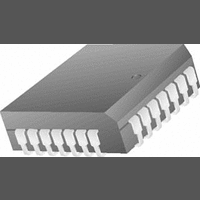CS5102A-BL Cirrus Logic Inc, CS5102A-BL Datasheet - Page 29

CS5102A-BL
Manufacturer Part Number
CS5102A-BL
Description
A/D Converter (A-D) IC
Manufacturer
Cirrus Logic Inc
Specifications of CS5102A-BL
Input Channels Per Adc
2
Mounting Type
Surface Mount
No. Of Channels
2
Power Rating
44mW
Supply Voltage Min
4.5V
Peak Reflow Compatible (260 C)
No
Sample Rate
20kSPS
Supply Voltage Max
5.5V
Lead Free Status / RoHS Status
Contains lead / RoHS non-compliant
Available stocks
Company
Part Number
Manufacturer
Quantity
Price
Part Number:
CS5102A-BL
Manufacturer:
CRYSTAL
Quantity:
20 000
Company:
Part Number:
CS5102A-BLZ
Manufacturer:
Cirrus Logic Inc
Quantity:
10 000
Part Number:
CS5102A-BLZ
Manufacturer:
CRYSTAL
Quantity:
20 000
If sampling is not synchronized to the input sine
wave, it is highly unlikely that the time record will
contain an integer number of periods of the input
signal. However, the FFT assumes that the signal
is periodic, and will calculate the spectrum of a sig-
nal that appears to have large discontinuities,
thereby yielding a severely distorted spectrum. To
avoid this problem, the time record is multiplied by
a window function prior to performing the FFT. The
window function smoothly forces the endpoints of
the time record to zero, thereby removing the dis-
continuities.
The effect of the window in the frequency-domain
is to convolute the spectrum of the window with
that of the actual input.
The quality of the window used for harmonic anal-
ysis is typically judged by its highest side-lobe lev-
el. A five term window is used in FFT testing of the
CS5101A and CS5102A. This windowing algo-
DS45F6
Figure 19. CS5101A FFT (SSC Mode, 1-Channel)
Figure 21. CS5102A FFT (SSC Mode, 1-Channel)
rithm attenuates the side-lobes to below the noise
floor. Artifacts of windowing are discarded from the
signal-to-noise calculation using the assumption
that quantization noise is white. Averaging the FFT
results from ten time records filters the spectral
variability that can arise from capturing finite time
records without disturbing the total energy outside
the fundamental. All harmonics are visible in the
plots.
As illustrated in Figure 19, the CS5101A typically
provides about 92 dB S/(N+D) and 0.001% THD at
25 °C. Figure 20 illustrates only minor degradation
in performance when the ambient temperature is
raised to 138 °C. Figures 21 and 22 illustrate that
the CS5102A typically yields 92 dB S/(N+D) and
0.001% THD even with a large change in ambient
temperature. Unlike conventional successive-ap-
proximation ADC's, the signal-to-noise and dy-
namic range of the CS5101A and CS5102A are
Figure 20. CS5101A FFT (SSC Mode, 1-Channel)
Figure 22. CS5102A FFT (SSC Mode, 1-Channel)
CS5101A CS5102A
29


















